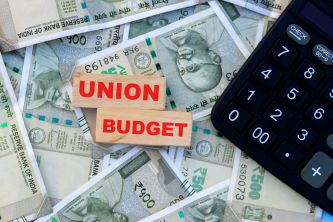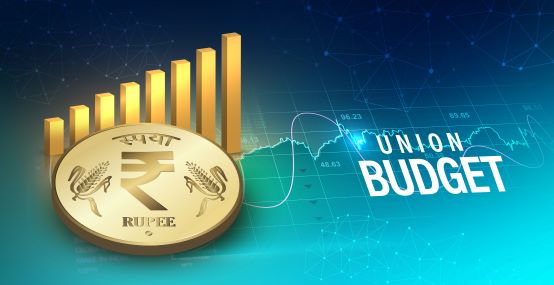Union Budget 2024 – Trivia Part 2

The Union budget 2024 presentation is just around the corner. Let us look at some trivia regarding the Union budgets from the past.
- Iconic Budgets: The 1973–74 budget presented by Yashwantrao B. Chavan under the administration of Indira Gandhi is known as the "Black Budget" because it had a 550–crore fiscal deficit. India was experiencing severe financial difficulty at the time.
- Carrot and Stick Budget: On February 28, 1986, VP Singh delivered the Union budget, which marked the beginning of India's transition away from the license raj system. The budget was known as the "Carrot and Stick" budget because it provided both rewards and penalties. In addition to introducing the MODVAT (Modified Value Added Tax) credit, it also began a vigorous campaign against smugglers, black marketers, and tax evaders in an effort to reduce the cascading effect of tax that consumers had to pay.
- Epochal Budget: The "Epochal Budget" of Manmohan Singh, presented in 1991 while the PV Narasimha Rao government was in power, marked the end of license raj and the start of the age of economic liberalization. Presented at a time when India's economy was on the verge of collapse, it included measures to encourage exports and reduced customs duties from 220 to 150 percent.
- Dream Budget: The Laffer Curve theory was applied by P Chidambaram in the 1997–1998 budget to reduce tax rates and raise revenue. He enacted a number of significant tax reforms, including a voluntary disclosure of income scheme to collect black money, and reduced the maximum marginal income tax rates for individuals from 40% to 30% and for domestic firms from 35% to 35%. The "Dream Budget" also reduced customs duties to 40% and simplified the excise duty system.
- Millennium Budget: In 2000, Yashwant Sinha's Millennium Budget, which gradually phased out incentives for software exporters and decreased customs duty on 21 products like computers and computer equipment, established the foundation for the development of India's Information Technology (IT) industry.
- Rollback Budget: Because most of the initiatives in Yashwant Sinha's 2002–03 budget for the NDA administration led by Atal Bihari Vajpayee were abandoned or rolled back, it is known as the Rollback Budget.
- Once-in-a-century Budget: On February 1, 2021, Nirmala Sitharaman unveiled what she referred to as a "once-in-a-century budget" that aimed to revitalize the third-largest economy in Asia by investing in infrastructure and healthcare while depending on a vigorous privatization agenda and high tax receipts.
Disclaimer: ICICI Securities Ltd. (I-Sec). Registered office of I-Sec is at ICICI Securities Ltd. - ICICI Venture House, Appasaheb Marathe Marg, Prabhadevi, Mumbai - 400 025, India, Tel No : 022 - 6807 7100. I-Sec is a Member of National Stock Exchange of India Ltd (Member Code :07730), BSE Ltd (Member Code :103) and Member of Multi Commodity Exchange of India Ltd. (Member Code: 56250) and having SEBI registration no. INZ000183631. Name of the Compliance officer (broking): Ms. Mamta Shetty, Contact number: 022-40701022, E-mail address: complianceofficer@icicisecurities.com. Investments in securities markets are subject to market risks, read all the related documents carefully before investing. The contents herein above shall not be considered as an invitation or persuasion to trade or invest. I-Sec and affiliates accept no liabilities for any loss or damage of any kind arising out of any actions taken in reliance thereon. Such representations are not indicative of future results. The securities quoted are exemplary and are not recommendatory. The contents herein above are solely for informational purpose and may not be used or considered as an offer document or solicitation of offer to buy or sell or subscribe for securities or other financial instruments or any other product. Investors should consult their financial advisers whether the product is suitable for them before taking any decision. The contents herein mentioned are solely for informational and educational purpose.
Please Enter Email
Thank you.
Related content

Articles - Personal Finance
What is PM Gati Shakti Yojana
Hon'ble Finance Minister Nirmala Sitharaman unveiled three major economic railway corridors in the interim budget of 2024 for the PM Gati Shakti Yojana. Explore detailed information about PM Gati Shakti Yojana.

Articles - Personal Finance
Analysis of Interim Budget 2024
Get to knwo about the impact of interim budget 2024 and a detailed analysis in this article.

Articles - Personal Finance
What Is a Surplus Budget
Learn about surplus budget and how a budget surplus impacts the economony.

Articles - Personal Finance
What is a Budget Deficit
Find out the importance of budget deficit. Cause of budget deficit and What is the relationship between budget deficit and stock markets

Articles - Personal Finance
What is Union Budget and Why it so Important
Learn about the what is the Union Budget in this article for a comprehensive information of its importance.

Articles - Personal Finance
Union Budget: Key Details & Importance
As we come closer to February 1, the chatter around the expectations over Union Budget increases. From young college students looking to start their careers and small business owners to leading economists and industrialists, almost every Indian citizen keeps a tab on the Budget announcement. Let us discuss what is Union Budget and its importance for the economy.

Articles - Personal Finance
Impact of the Budget 2024 on Share Markets
The Union Budget 2024 got quite a cheer from the share market as major indices ended on a positive note. The NIFTY 50 and the Sensex benchmark indices gained during the Budget speech and finished green.

Articles - Personal Finance
What to Expect From Budget 2022 for Individuals and Salaried People
Over the last two years, individuals, especially salaried people, have taken quite a hit because of the pandemic. Work from home has not only increased expenses such as electricity and WiFi bills but has also put a strain on take-home salary. Naturally, people hope that the government will step in and ease some of these troubles through their Union Budget announcements.

Articles - Personal Finance
What is the impact of the Union Budget on the Indian Stock Markets
Indian stock markets are dynamic prone to ups and downs depending on a host of factors. Every year, one major event that impacts the equities and bond markets is the announcement of the Union Budget.

Articles - Personal Finance
History of the Union Budget in India
The ritual of presenting the Indian Budget is more than two centuries old, dating back to colonial times. India's first-ever Budget was presented by James Wilson in 1860, a Scottish economist and politician.

Articles - Personal Finance
10 Taxes Affected by Budget
Taxes are the most crucial and most significant source of revenue for the Government. The Government uses the revenues generated from taxes to provide basic facilities to its citizens and the nation's overall development. For example, construction of roads, buildings, infrastructure, public healthcare facilities, providing various subsidies, etc.

Articles - Personal Finance
What is Populist Budget
A budget typically meant to please people is known as a populist budget. It spends more on lucrative schemes that can increase the Government's fiscal deficit. Such a budget doesn't have any enduring positive impact on the country's economy.

Articles - Personal Finance
What are the Components of Union Budget
The Union Budget of India has two main components, each with two sub-components. To know more in detail, visit the link.

Articles - Personal Finance
Types of Budget in India
Deep dive into the three different types of government budgets and their impact on the economy.

Articles - Stocks
What is the Budget? Union Budget for Beginners
The Finance Minister of India presents the Union Budget on the first day of February every year. It is also known as the annual financial statement of the country. It contains the details of the revenue sources and expenses undertaken by the Government during the applicable financial year.

 Top Mutual Funds
Top Mutual Funds







COMMENT (0)